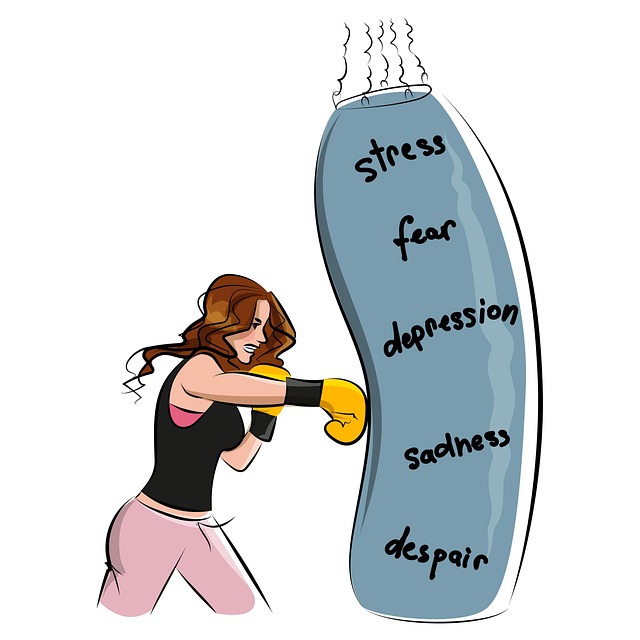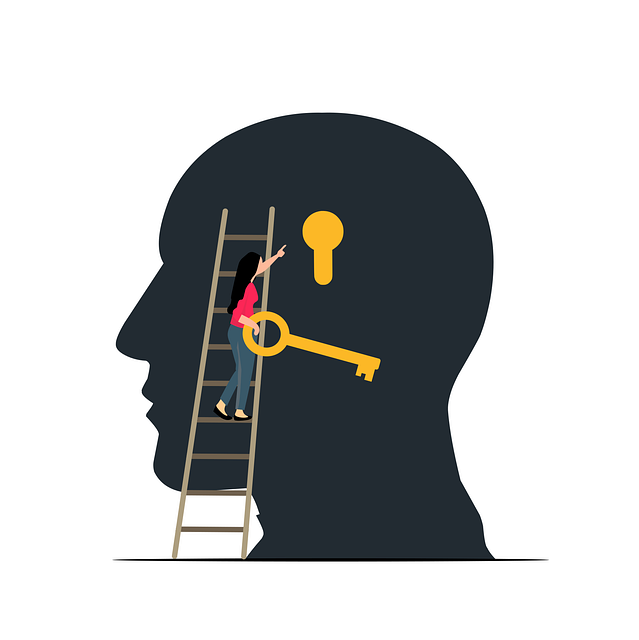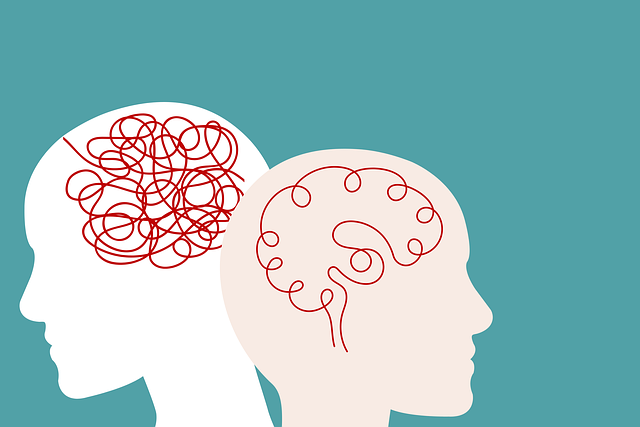Stress, impacting mental health across dimensions, is managed holistically at Centennial Interpersonal Issues Therapy through workshops combining mindfulness meditation with practical strategies. These sessions, focusing on personal growth and emotional intelligence development, empower individuals to cope with anxiety, depression, and interpersonal challenges. Measuring success quantitatively and qualitatively, workshops integrate long-term support for lasting personal growth and improved mental well-being, including daily mindfulness routines, self-esteem improvement, and supportive communities.
“Discover the power of stress management workshops as a holistic approach to well-being. In today’s fast-paced world, these transformative programs are essential tools for navigating Centennial interpersonal issues therapy. This article guides you through the process, from understanding the impact of stress on mental health to designing engaging workshops that foster personal growth. We’ll explore interactive session ideas and provide metrics for success. By implementing these strategies, individuals can build resilience, enhance coping mechanisms, and thrive in a stressful environment.”
- Understanding Stress and Its Impact on Well-being
- Designing Effective Stress Management Workshops
- Facilitating Interactive Sessions for Personal Growth
- Measuring Success and Long-term Support Strategies
Understanding Stress and Its Impact on Well-being

Stress is a universal experience that can stem from various sources, including work pressure, personal relationships, financial worries, or even excitement for upcoming events. While occasional stress is a normal part of life, chronic stress can significantly impact an individual’s overall well-being. It is a complex interplay between environmental factors and one’s perception and response to them. The effects of prolonged stress on mental health are profound, potentially leading to anxiety, depression, and other interpersonal issues that require therapy, such as those addressed by Centennial Interpersonal Issues Therapy.
Understanding stress involves recognizing its physiological, emotional, and cognitive dimensions. It can manifest as physical symptoms like elevated heart rate and muscle tension or as psychological ones, including difficulty concentrating and irritability. Effective management strategies focus on addressing these manifestations. Techniques like Mental Wellness Journaling Exercise Guidance promote self-awareness by encouraging individuals to identify stress triggers and monitor their responses. Cultural Sensitivity in Mental Healthcare Practice ensures that interventions are tailored to diverse populations, considering unique cultural perspectives and beliefs about well-being and stress. Additionally, mood management techniques help individuals regulate their emotional responses to stressful situations, fostering a sense of resilience and enhancing overall mental wellness.
Designing Effective Stress Management Workshops

Designing effective stress management workshops requires a holistic approach that caters to both the mind and body. At Centennial Interpersonal Issues Therapy, we focus on integrating various therapeutic techniques such as Mindfulness Meditation to help participants achieve mental wellness. These sessions are meticulously crafted to address common stressors in today’s fast-paced world, offering practical strategies for coping with anxiety, depression, and other interpersonal issues.
Through the development of Mental Wellness Coaching Programs, our workshops foster a supportive environment where individuals can openly discuss their challenges and learn from one another. We also prioritize stigma reduction efforts by promoting understanding and empathy towards mental illness. By combining evidence-based practices with engaging activities, we ensure that participants leave with valuable tools to navigate their daily lives more effectively and maintain balanced mental health.
Facilitating Interactive Sessions for Personal Growth

Facilitating Interactive Sessions for Personal Growth is a key component of successful Stress Management Workshops. These sessions are designed to create a safe and supportive environment where participants can explore their feelings, share experiences, and learn from one another. Through techniques like role-playing and group discussions, workshop facilitators can help individuals navigate complex interpersonal issues, enhancing their emotional intelligence and communication skills. This not only aids in stress reduction but also fosters self-esteem improvement and trauma support services, making it a vital aspect of holistic mental health care.
Centennial Interpersonal Issues Therapy plays a significant role in these interactive sessions, helping participants understand the root causes of their stress and providing tools to manage it effectively. Risk Assessment for Mental Health Professionals is another critical element, ensuring that facilitators are equipped to handle potential triggers and provide appropriate support. By integrating these approaches, workshops can offer comprehensive solutions tailored to individual needs, contributing to lasting personal growth and improved mental well-being.
Measuring Success and Long-term Support Strategies

Measuring success and implementing long-term support strategies are pivotal aspects of any stress management workshop. Successful workshops don’t merely focus on immediate relief but also aim to equip participants with lasting tools for managing stress. This involves assessing both quantitative and qualitative outcomes. Quantitative measures, such as pre-post test scores on stress levels or emotional regulation scales, provide tangible data on the workshop’s immediate impact. Qualitatively, participant feedback through surveys or individual check-ins can reveal valuable insights into their experiences and the workshop’s effectiveness in addressing their specific interpersonal issues.
Long-term support strategies often involve integrating Stress Reduction Methods, such as mindfulness techniques, into daily routines to foster emotional resilience. Workshops that promote Self-Esteem Improvement, for instance, through confidence-building exercises or cognitive reframing, can empower individuals to better cope with challenging situations. Additionally, establishing a supportive community among workshop participants can encourage ongoing emotional support, solidifying the positive changes fostered during the initial program.
Stress management workshops play a pivotal role in equipping individuals with tools to navigate life’s challenges. By understanding stress, designing engaging sessions, facilitating interactive personal growth activities, and implementing successful measurement strategies, organizations like Centennial Interpersonal Issues Therapy can foster well-being on a profound level. These workshops not only provide immediate relief but also equip participants with long-term coping mechanisms for improved mental health and enhanced quality of life.











